
Culture
19:55, 14-Feb-2018
Grand Songs of the Dong ethnic minority group
CGTN
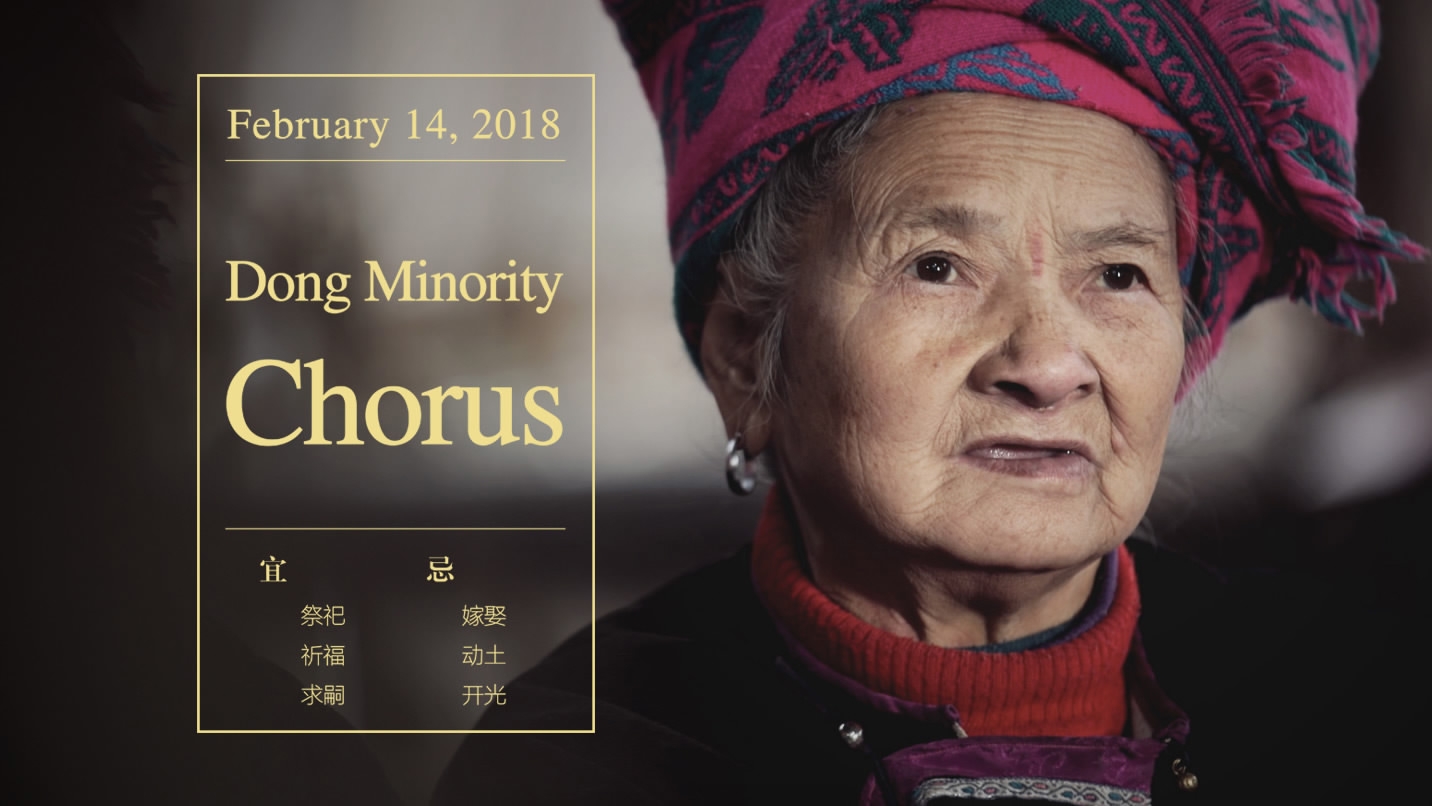
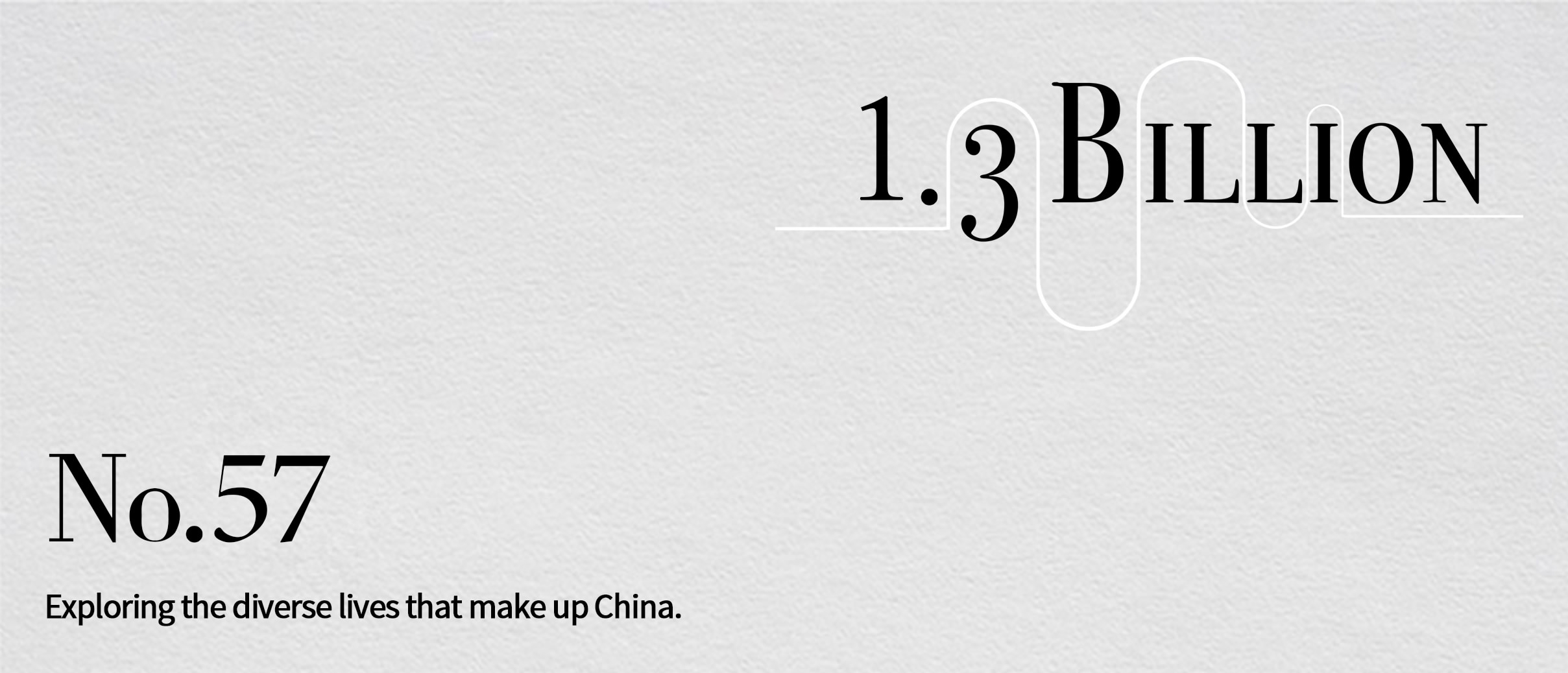
CGTN
CGTN
Going Home

Local people are celebrating the new year. /By CGTN
Local people are celebrating the new year. /By CGTN
New Year will be here soon. In the Xiaohuang Village of the Dong people, southwest of Guizhou Province, everyone is busy preparing for the celebration.
Young locals will come back from all over the country and, dressed in their national costumes, they will gather in the drum tower square, helping the elderly.
Their lingering grand song calls to those descendants still on their way back.
"We, the Dong people, also celebrate the Spring Festival. Fellow-villagers will all come back. We kill pigs, eat the meat, and drink wine. Young girls will be invited to the drum towers to sing antiphonal songs," says Pan Sayinhua, a prestigious local woman.
Pan is the director for the New Year's event of singing in the drum tower.
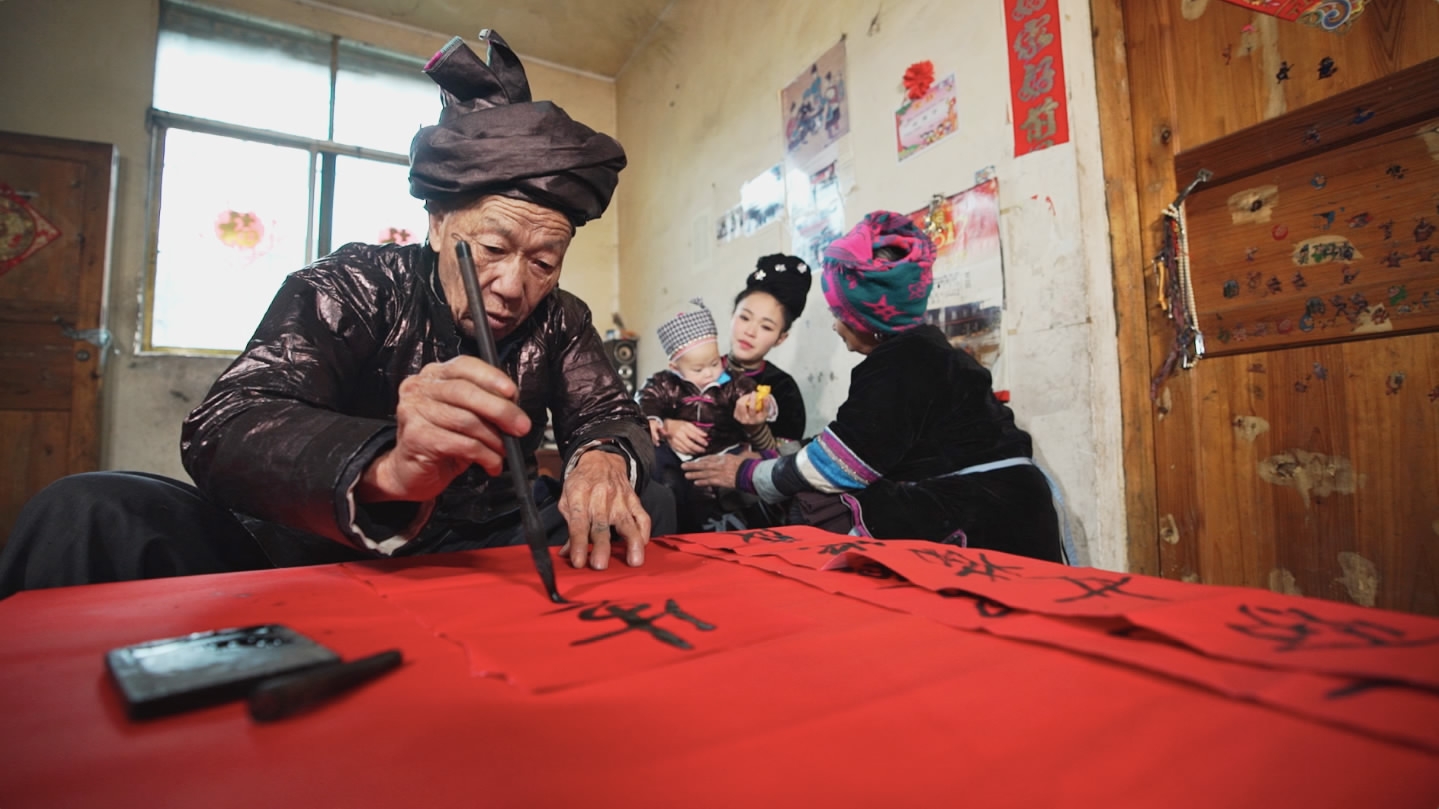
CGTN Photo
CGTN Photo
"Pan" is her husband's family name, "Sa" means grandma in the Dong language, and "Yinhua" is also her grandchild's given name. She is like the matriarch of the whole village, always taking care of everyone. She always gathers the youngsters to sing the Grand Songs before the Spring Festival.
"For the Dong people, singing is as important as eating."
Though almost in her 80s, she looks full of energy while singing the grand song.
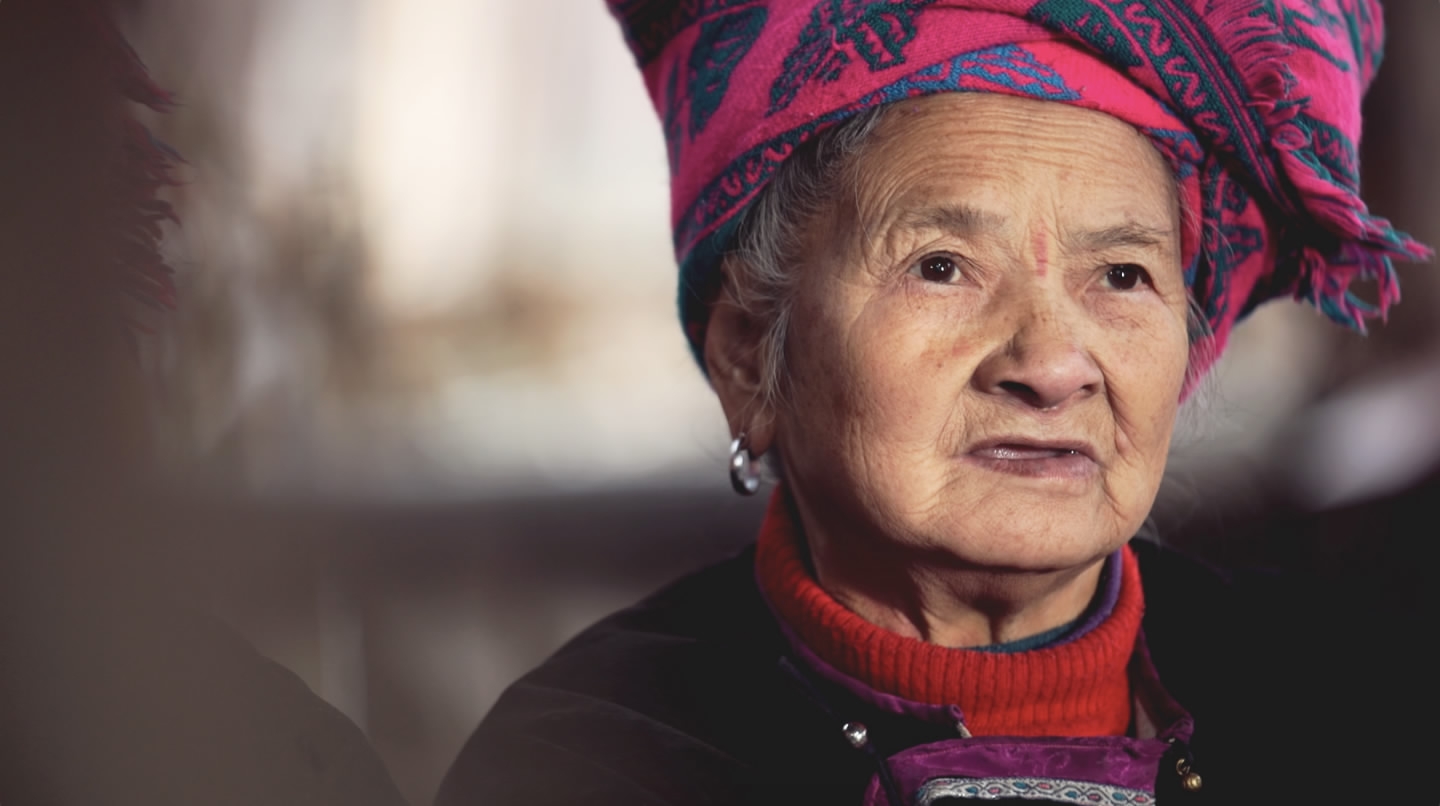
Pan Sayinhua. /By CGTN
Pan Sayinhua. /By CGTN
"Since I was four years old, I have been singing for seventy years." Though she could not remember the exact year she was born. "I don't mind it," she said.
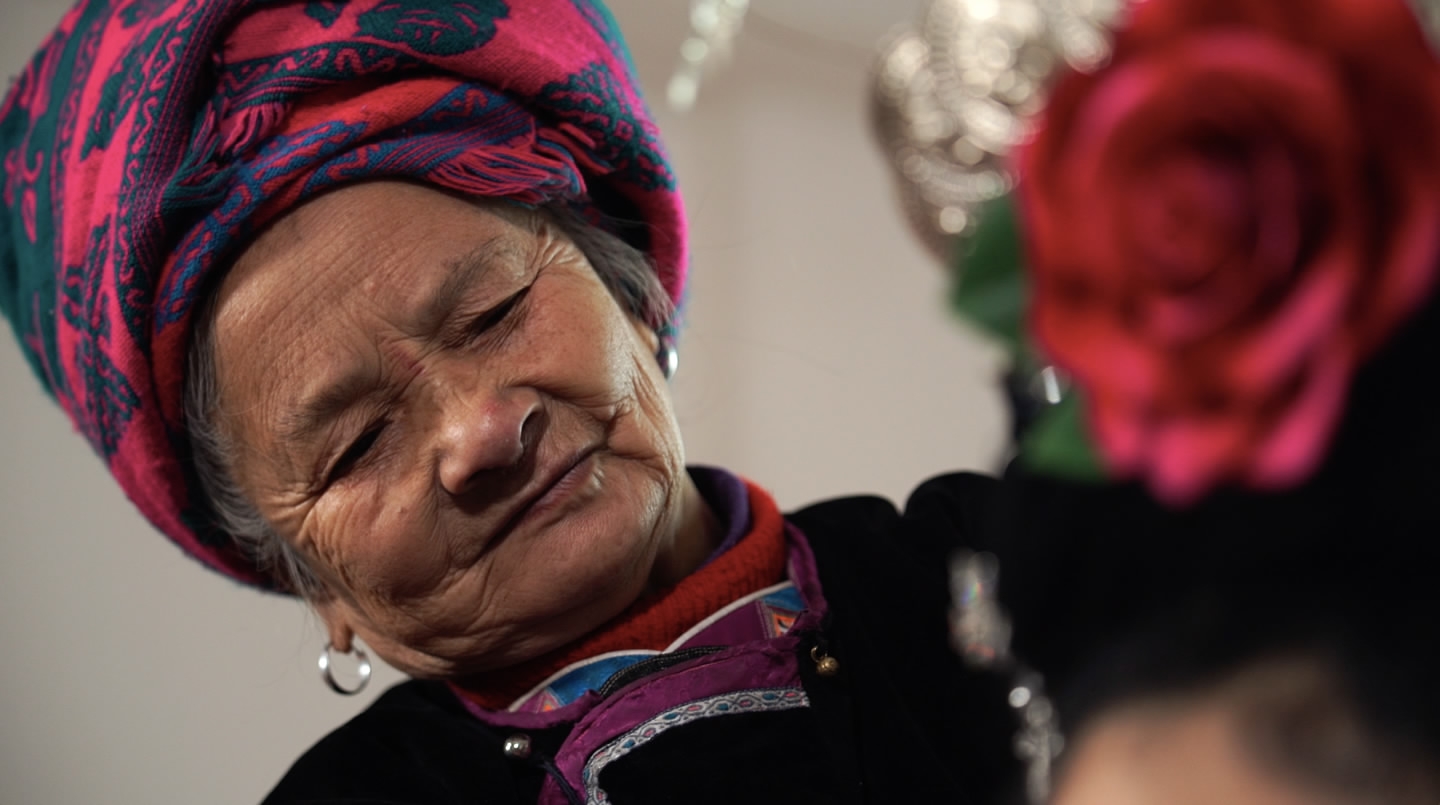
CGTN Photo
CGTN Photo
Before the event, she carefully dresses up the girls, who remind her of her youth.
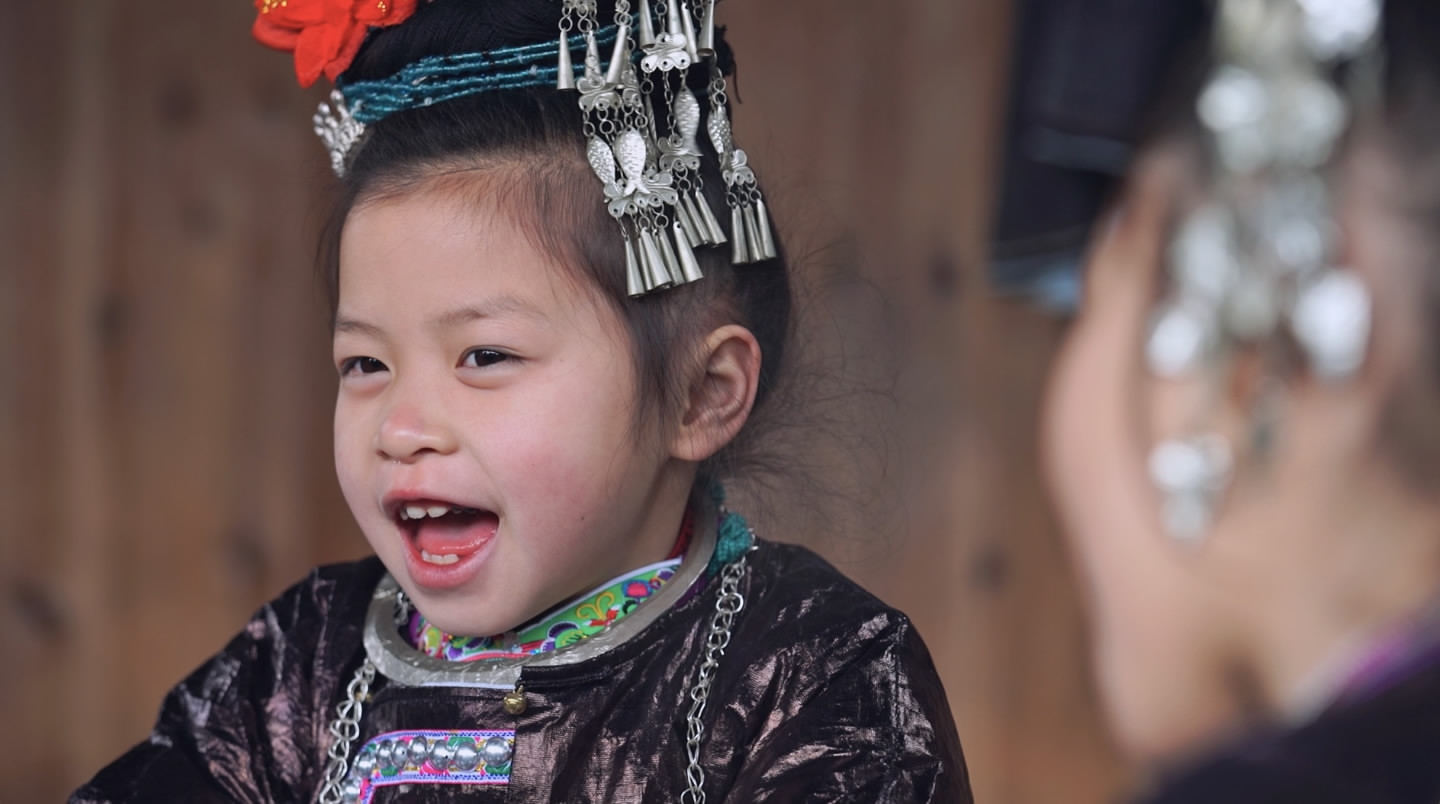
CGTN Photo
CGTN Photo
"There was no TV or computer when I was young. We always sang the Grand Songs."
"The elderly would come here at the Spring Festival. We should forget neither the romance between lovers, nor the love of parents. We sing together."
Young Pan could not understand the sophisticated lyrics, but felt "so happy singing".
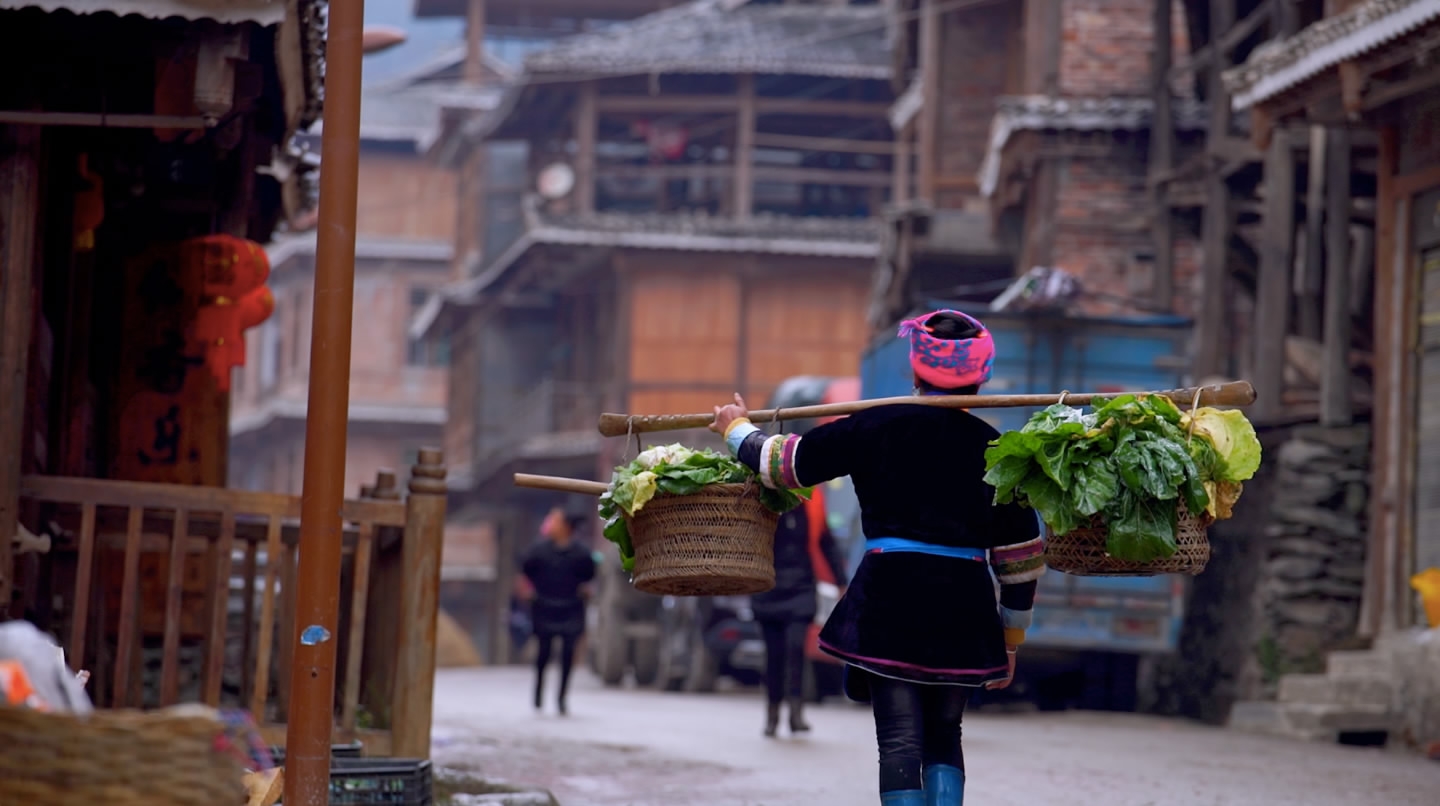
CGTN Photo
CGTN Photo
At the age of 18, she married a young scholar in the village, and had three kids with him.
When her husband started farm work at sunrise, she would do housework and sing for herself. Life showed her the meaning of the songs, making her even happier.
"When I was 25, I started to teach my daughter. People also asked me to teach other kids."
Pan has a voice of gold, and her passion for the Grand Song has made her a young maestro.
She wants to pass on this happiness to the next generations.
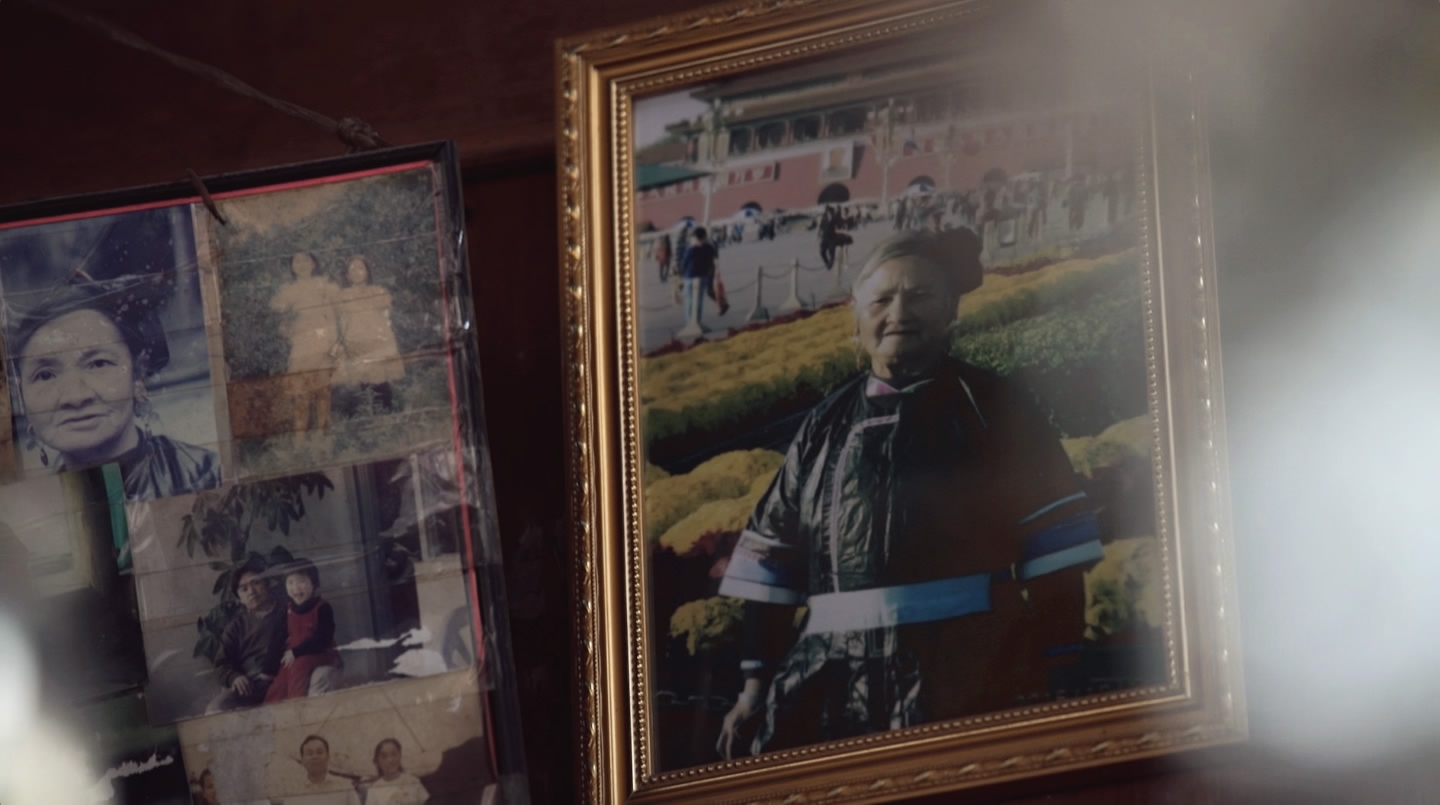
CGTN Photo
CGTN Photo
When she was 40, her husband passed away. Pan took up the responsibility of supporting the whole family, but she's always in a positive mood when singing the songs or in the company of her students.
Inheriting
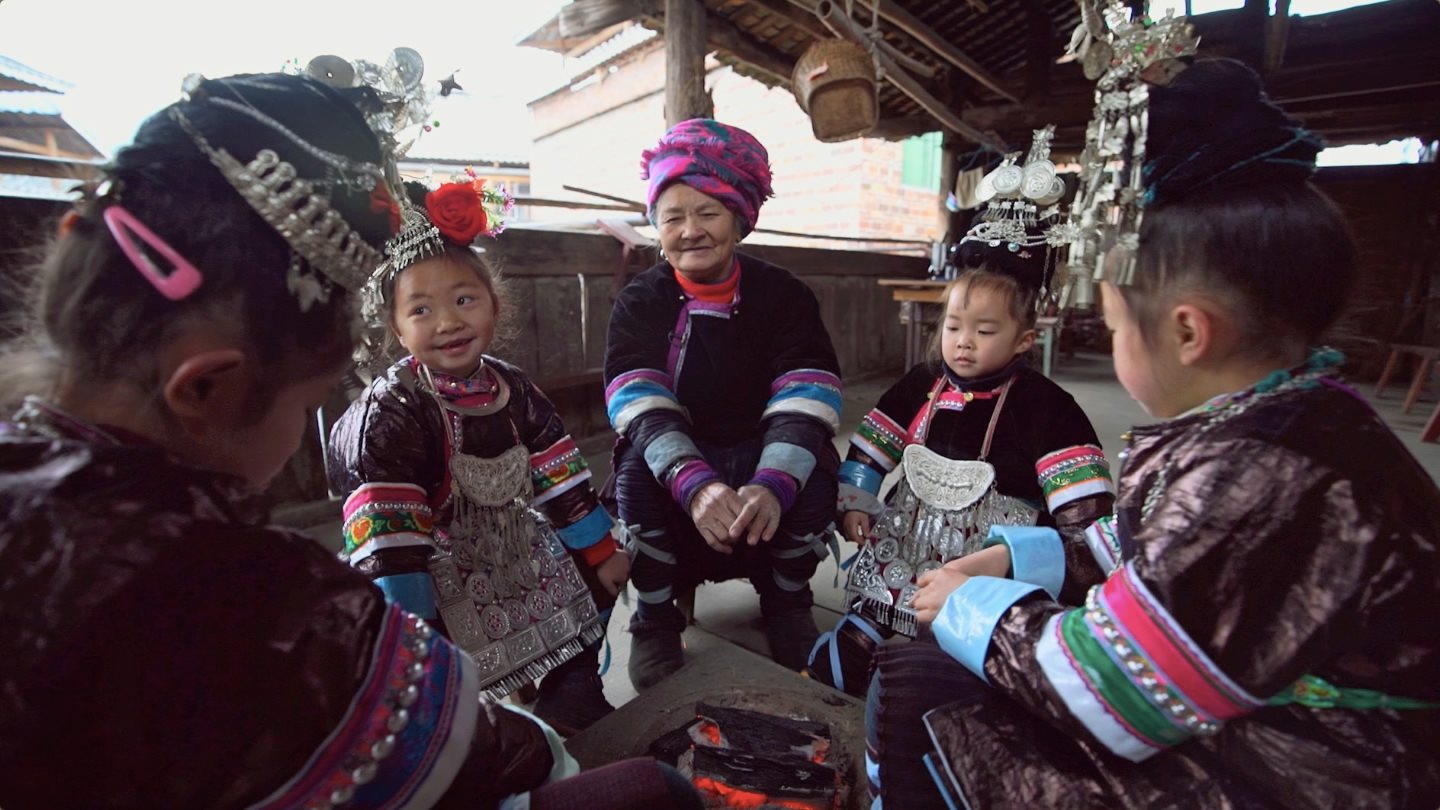
CGTN Photo
CGTN Photo
Pan understands the meaning of the Grand Songs even more thanks to her rich life experience.
"What our ancestors taught us, we shall pass on."
Pan never thought that the Grand Songs she's been teaching for decades, would ever astonish the world.
In 2009, the Grand Song of the Dong people was listed in the World Intangible Cultural Heritage.
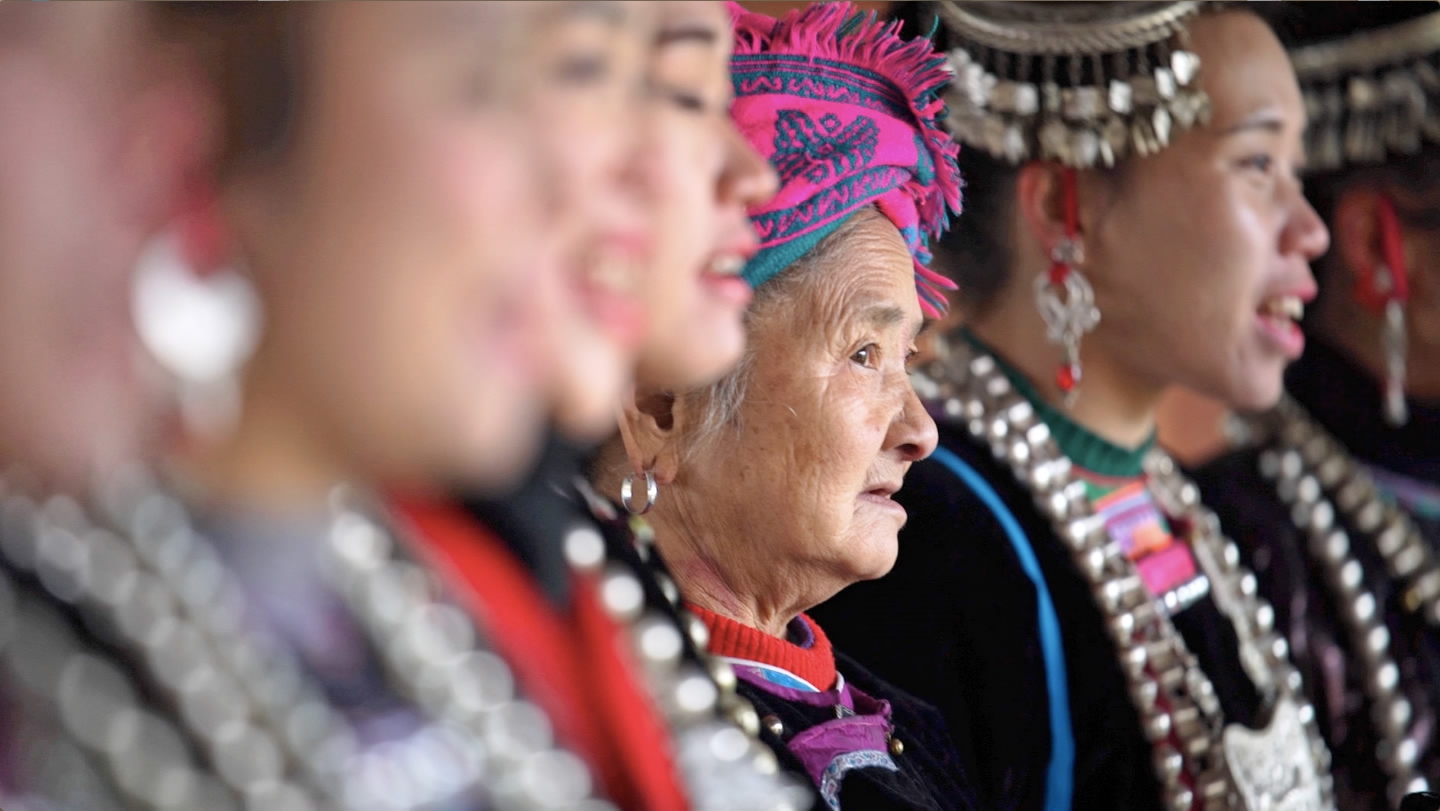
CGTN Photo
CGTN Photo
For Pan, however, the only difference is that her house has become more crowded. She now talks with people from all over the world, telling stories about her people and the Grand Song.
She is more occupied, but happier during the Spring Festival.
She's happy to perform for the guests. Sometimes the children would come and join her.
Though in her seventies, her eyes shine every time she sings the grand songs.

CGTN Photo
CGTN Photo
"Do tell our descendants,
not to forget our homeland.
Here flow the ancestors' blood and tears.
Do not leave, even if everything was ruined.”
The tune of "Ancestors' Arrival" - a part of repertoire in every Spring Festival - still echo in the village. It travels through time, reuniting the Dong people for generations to come - and gone.
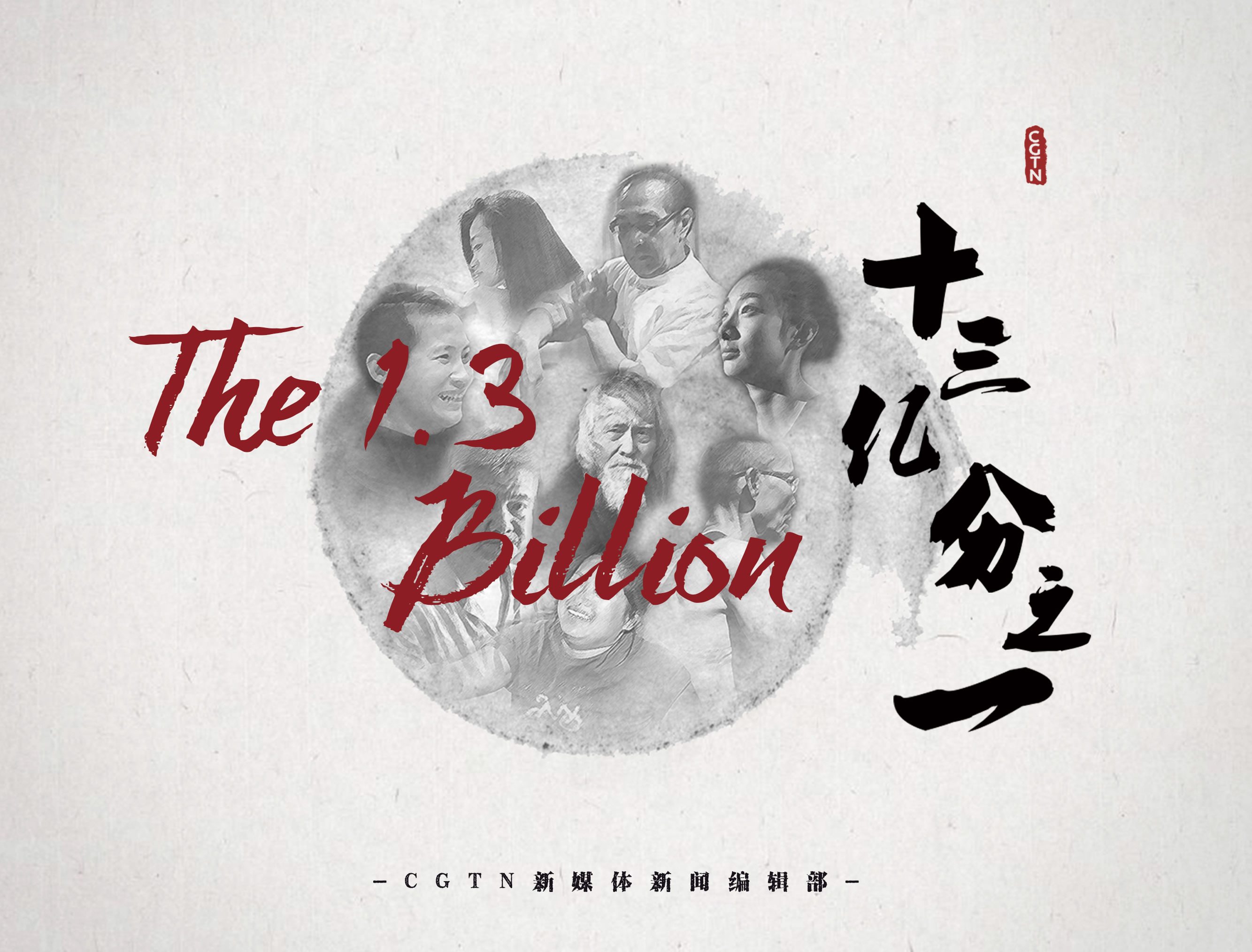
The story is one in The 1.3 Billion series exploring the diverse lives that make up China.
The story is one in The 1.3 Billion series exploring the diverse lives that make up China.

SITEMAP
Copyright © 2018 CGTN. Beijing ICP prepared NO.16065310-3
Copyright © 2018 CGTN. Beijing ICP prepared NO.16065310-3